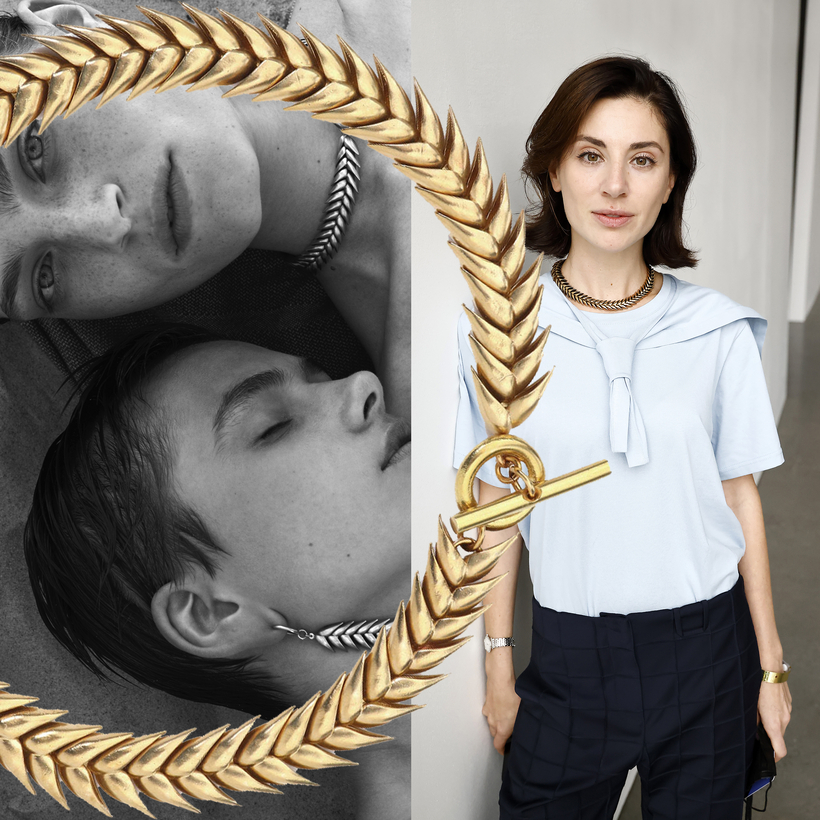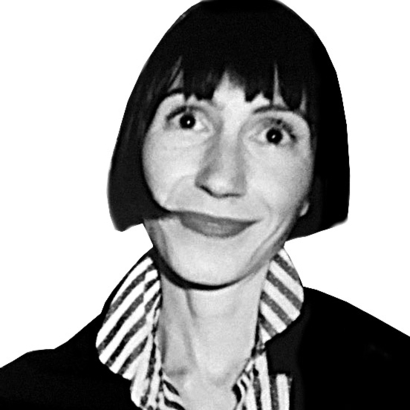The images coming out of Ukraine these days do not tend to be especially stylish. But even in wartime, the country’s fashion industry is raging on. One of its most prominent designers, Svitlana Bevza, has even managed to make it to New York in time to show her spring-summer ’23 collection during the city’s Fashion Week.
Sitting in a friend’s living room in Brooklyn, Bevza wears an elegant ivory pullover she designed. Her necklace is fashioned from gold chain links, shaped like angry spikes of Ukrainian wheat. “It’s been such a tough half of this year,” she says. “I’m used to … not the best of conditions.”

On the fashion scene, Bevza is a known quantity; this season marks her 12th show at New York Fashion Week. But now, despite the 40-year-old designer’s commercial success and critical acclaim, she is simply trying to get by.
“I’m used to … not the best of conditions.”
For Bevza, like nearly all Ukrainians, the past six months have been dramatic, heart-wrenching, and dangerous. Shortly after presenting her fall ’22 collection in New York, in February—a sleek lineup of minimalist separates in black and white—she returned home to a country on the brink of a Russian invasion.
Immediately, Bevza and her two children fled Kyiv and relocated to Porto, Portugal. Her husband, a diplomat and formerly one of Ukraine’s ministers of infrastructure, stayed behind and joined the Ukrainian Army as a member of the Territorial Defense Forces. Now a captain, he and his battalion are engaged in counter-offensive operations in southern Ukraine. Many of Bevza’s factories in Ukraine were either damaged or shut down entirely, and with a disabled banking system and disrupted importations, fabric supplies were scarce.
Around 85 percent of Bevza’s retail accounts are outside of Ukraine; her clothes are sold everywhere from sprawling London department stores, such as Harvey Nichols and Selfridges, to smaller boutiques, such as the Frankie Shop in New York. Bevza was more than a month late delivering her spring ’22 orders, and for most designers, the consequences would be damning. “I’m really amazed by the buyers’ support,” she says. “Nobody canceled.”

Even more surprising is that the French luxury brand Celine stepped in to help. The house’s head of merchandising, a fellow Ukrainian, approached Bevza and offered supplies. “In the middle of May, I went to Paris to Celine’s warehouses, and there were all these basic fabrics, and they just told us, ‘You can have it,’” she says.
Over the summer, Bevza encouraged her colleagues to join her in Portugal to work on the next collection, but most were hesitant to leave Ukraine. “They had their own families,” she says. Slowly, some factories in Kyiv were able to re-start production, and Bevza’s design team re-united online. “I was sending them sketches, doing online calls, online fittings,” she says, attributing their working success to a nonverbal vernacular cultivated over the years. “They know me very well.”
Given all the chaos, it was never clear that Bevza would manage to eke out a new collection. But the economic imperative to do so, as well as a certain patriotic willpower, drove her forward. “Those are my earnings,” she says of the revenue generated by her self-funded business. “I’m the only one in the family who feeds the family, because my husband is in the army now, and that’s a salary that’s not so good … ” Her voice trailed off again.

Five years ago, Bevza’s New York debut included a series of tailored tops evocative of bulletproof vests. It was a statement on Ukraine’s political unrest at the time, and an artistic interpretation of the idea of bodily protection. Expect similar themes to show up in Bevza’s spring-summer ’23 collection. While her runway show will be a moment of triumph, the euphoria will be temporary, as Bevza is flatly realistic about her country’s prospects.
“I have no idea what will happen in Ukraine next month,” she says, clearly fatigued by the inability to plan for her future. “Will we manage to do this again next season? We are not certain. But that’s how it works.”
Laura Neilson is a New York–based writer and a regular contributor to The New York Times and The Wall Street Journal


